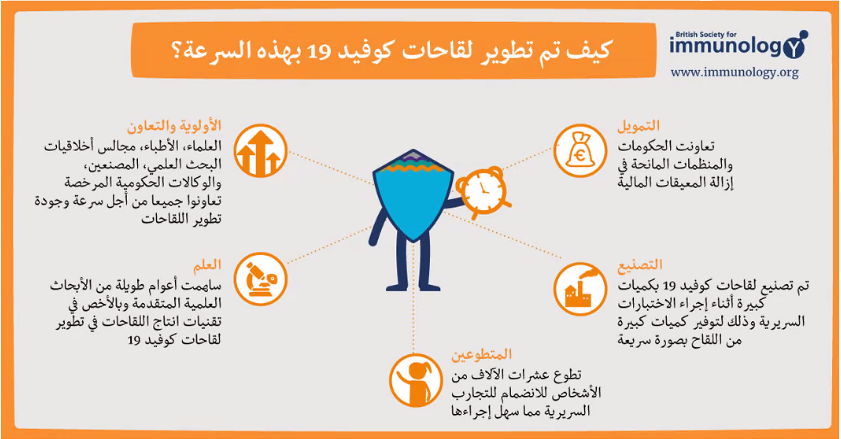News
Forging connections at RSB’s outreach and engagement conference
- Details
- 26 November 2021
Around 100 early career researchers and public engagement professionals came together for this year’s RSB’s Outreach and Engagement symposium, RSB Connect.
The three-day online conference was a forum for people to share their outreach and engagement experiences from 2020 and 2021, with many explaining how their work had been impacted by the pandemic.
Presentations during the first day of the conference were around the theme of “reflecting,” with guest speakers sharing how the pandemic changed their activities and options, and how they shifted their projects accordingly.
Dr Maria Ocampo-Hafalla and her team from the Francis Crick Institute kicked off the day presenting how they transformed their schools engagement programme from in-person visits to online experiments via Zoom.
Dr Erika Aquino from the British Society for Immunology then talked about the extensive work the BSI has done on COVID-19, including working with local councils and vaccine-hesitant communities.
One of the resources BSI have produced on COVID-19, suitable for Arabic speakers
In the afternoon, Joana Moscoso a co-founder of the Native Scientist intiative, explained her work in connecting young people with scientists who speak their native language.
Joana was followed by Professor Fulvio D'Acquisto, who shared his experiences contributing to Frontiers for Young Minds, a scientific journal that is peer-reviewed by school children.
Children meeting with scientists as part of the Native Scientist campaign (photo credit: Native Scientist)
For the second day, speakers were asked to focus on present-day opportunities and challenges.
The day started with an insightful session run by Professor Louise Archer, chair of sociology at the Institute of Education at University College London. Her research focusses on the concept of science capital, an increasingly-used tool to describe an audience’s affinity for science.
Dr Archer shared the Equity Wheel, great tool for identifying key dimensions of equity and social justice
Dr Sarah Bearchell, STEM lead for the Lightyear Foundation and science communication expert Dr Jamie Gallagher shared how to make online projects and events as accessible as possible.
Dr Alfredo Carpineti then joined the conference to discuss how the STEM community can improve LGBT+ inclusion. Dr Carpineti, who runs charitable trust Pride In STEM, highlighted the barriers still faced by the LGBT+ community in STEM, as well as practical changes individuals and organisations can make to aid inclusivity.
Dr Claire Price MRSB and Dr Hephzi Tagoe MRSB led the afternoon’s panel on local community engagement. Dr Price, a past winner of the RSB’s Outreach and Engagement Award in 2020, shared her experience of launching the first science festival for Merthyr Tydfil, her home town in Wales.
Some tips from Dr Carpineti on how to better support the LGBT+ community in STEM
Dr Tagoe then spoke about running the Basildon Science Festival, which has seen substantial growth over the years.
On day three, speakers shared their future projects and aspirations for outreach and engagement in a post-pandemic world.
Toby Shannon-Smith from the Institute of Physics discussed the organisation’s work with the local community during the pandemic, including their Limit Less campaign and he was followed by Anna Woolman who shared what lies ahead for the British Science Association.
A lively panel discussion followed that tackled the challenges of securing funding, with Greer Roberts from Wellcome, Dr Magda van Leeuwen from the Royal Society of Chemistry and Dr Steve Scott from UKRI sharing what they look for in successful grant applications.
In the afternoon, panellists Dr Lucy Green, Dr Nicolas Bonne and Marie Bowers discussed the development and delivery of their public engagement projects that are pushing the boundaries.
Dr Lucy Green, associate professor at University of Southampton and previous winner of the RSB’s Outreach and Engagement Award in 2019, shared her giant Kerplunk model that she uses to teach young people about the intersecting factors that influence human health.
Marie Bowers, a technician at the University of Glasgow, shared her project making STEM more accessible for Gypsy, Traveller, Roma, Showman and Boater communities – groups of people who each often experience the highest exclusion rates in education.
Dr Nicolas Bonne, public engagement and outreach fellow at the University of Portsmouth closed the session by sharing his team’s project Tactile Universe, that produces 3D models to help visually impaired audiences understand more about astronomy.
All of the sessions were recorded and will be available on the RSB’s YouTube channel. For Twitter highlights, check out the hashtag #RSBConnect.
The event was sponsored be members of the RSB’s Outreach and Engagement Working Group: the Association for the Study of Animal Behaviour, Biochemical Society, the British Pharmacological Society, the British Society for Immunology, the Society for Experimental Biology, the Genetics Society and The Physiological Society.





